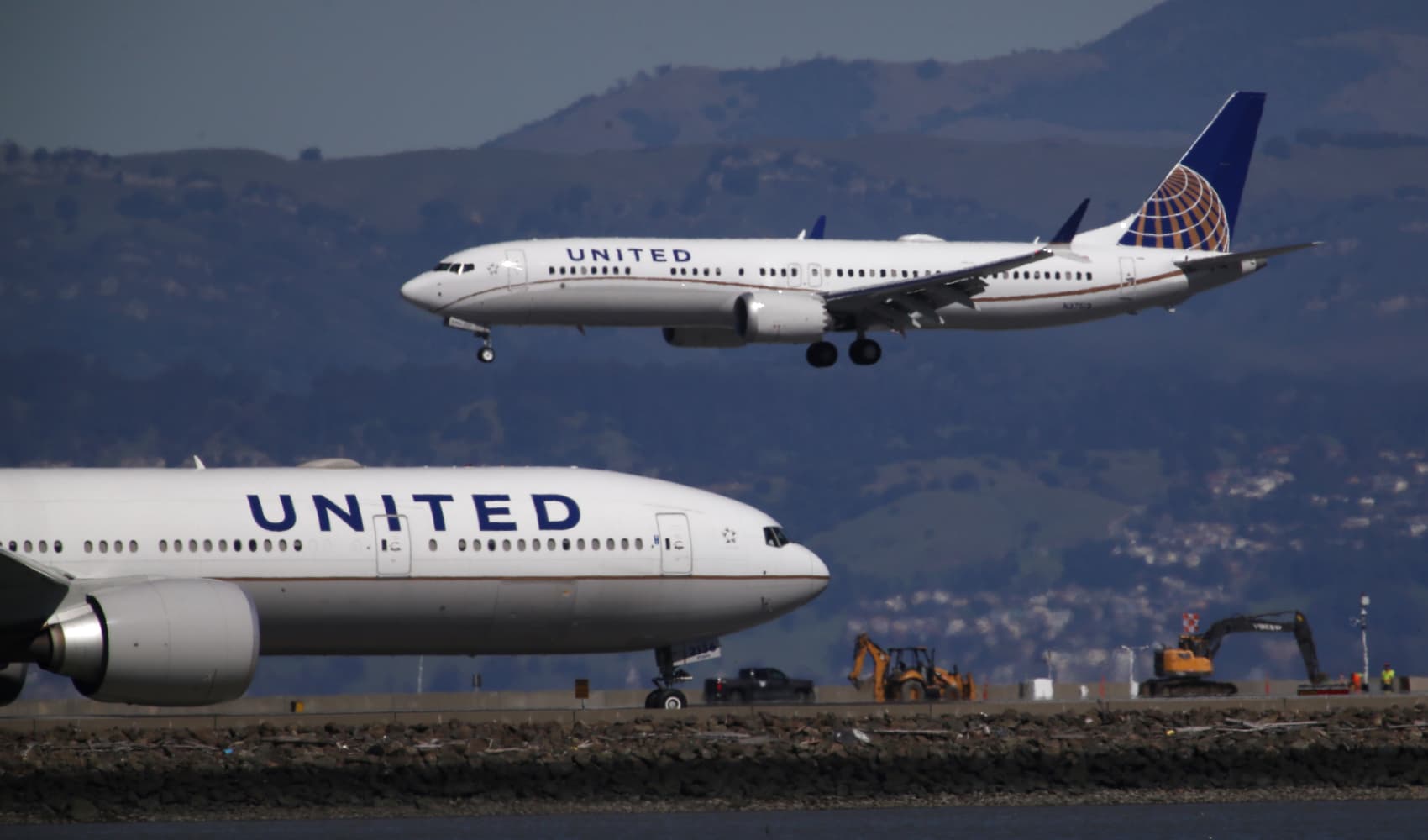
- Major League Baseball on Wednesday said the league has canceled more games, pushing Opening Day to April 14.
- "Because of the logistical realities of the calendar, another two series are being removed from the schedule," MLB Commissioner Robert Manfred said in a statement.
- It's been more than a week since the owners canceled the beginning of the regular season.
Major League Baseball on Wednesday said the league has canceled more games, pushing Opening Day to April 14 as negotiations between the owners and players union remain at a standstill.
"Because of the logistical realities of the calendar, another two series are being removed from the schedule," MLB Commissioner Robert Manfred said in a statement.
Get South Florida local news, weather forecasts and entertainment stories to your inbox. Sign up for NBC South Florida newsletters.
"I am saddened by this situation's continued impact on our game and all those who are a part of it, especially our loyal fans," he added.
The MLB Players Association issued their own statement, which said MLB's decision to cancel additional games was "completely unnecessary" and players have "yet to hear back" following proposals.
Money Report
It's been more than a week since the owners canceled the beginning of the regular season. League representatives and MLB Players Association officials met this week in New York as they seek a new collective bargaining agreement. Issues that need to be resolved include MLB's competitive balance tax and minimum salaries.
It's possible gameplay additions, such as a pitcher's clock, could be added, and a 14-team postseason is being floated as a possible bargaining chip, too. There were 10 postseason teams last year.
Last week, Manfred canceled the first two series of the 2022 regular season, totaling more than 90 games. Manfred called MLB's previous proposal its best offer and added "players will not get paid" for games missed.
Playoff expansion
On the playoff front, MLB envisions a 14-team format going forward, with a bye for the top team in the American League and National League. Under MLB's format, division winners would host a best-of-three series with all the games at their home field. Higher-seeded teams would also select their opponent.
The players prefer 12 teams in the playoffs, but last weekend media reports suggested MLBPA officials would consider 14 teams and include a "ghost win" for division winners. That means higher-seed clubs only need to win two games to advance, while the away team needs a series sweep.
The league ditched that idea, though. The union's postseason proposal "raises serious issues and is not a viable path forward," MLB spokesman Glen Caplin said, according to the Associated Press.
If MLB does expand to a 14-team postseason, it reportedly would add an extra $100 million per season via media rights. New TV deals with ESPN, Turner and Fox start for the 2022 season and represent roughly $1.8 billion in annual revenue over this decade for MLB. ESPN would get extra postseason games as part of its package.
Luxury tax, gameplay limits, support fund
Owners and players remain at odds over MLB's luxury tax line.
In the last CBA, the tax line was $210 million, up from $195 million in 2017. MLB offered to increase the luxury tax to $220 million in 2022. That would increase to $230 million by 2026. MLBPA wants the league to raise the tax line, allowing more teams to spend on players without the payroll penalties.
In MLBPA's latest proposal, players indicated they could be in favor of adding a pitcher's clock and limiting defensive shifts that contributed to lack of action in MLB games. The additions could be added as soon as the 2023 season but what MLBPA is seeking in exchange for gameplay items is unclear.
Though players aren't being paid, MLBPA issues stipends totaling a little more than $12,000 to each player during the lockout. MLBPA also started a $1 million fund for stadium workers affected by the work stoppage.
"This fund is intended to support workers who are most affected by the MLB-imposed lockout but whose livelihoods have been disregarded by the owners in their efforts to pressure players into accepting an unfair deal," MLB executive director Tony Clark said in a statement.
MLB matched the $1 million fund to help workers.
Blame and business impact
MLB brass is getting the lion's share of the blame for the labor stoppage. A study released by research firm Morning Consult said 45% of fans blame MLB owners for failure to reach a new agreement. That's up from 33% who blamed owners for the dispute around the shortened 2020 season. Twenty one percent blame the players.
The lockout is already taking a toll on some markets. The Wall Street Journal projects over $1 billion in losses for the Arizona and Florida spring training territories. And most of the local revenue for MLB clubs is temporality paused due to the lockout.
Longtime sports marketing executive Tony Ponturo said conversations with corporate sponsors likely have started and MLB clubs "are not getting their money until the games are played." However, Ponturo added clubs could attempt to offer extra ad inventory to partners instead of refunding money, which he projects isn't as significant during the first month of the season.
"But as it starts to drag, and their image is downgraded because you get angry fans – if it becomes a disaster as it did in 1994-95" – companies could elect to walk away, said Ponturo, the former vice president of global sports and entertainment marketing at Anheuser-Busch.
Turner Sports chief revenue officer Jon Diament said Tuesday companies are still waiting to buy regular-season MLB ad inventory, but they aren't spending their baseball ad budgets on other programing just yet.
But how long marketers will wait for baseball is unclear, especially since Turner Sports can offer better inventory around the National Basketball Association and the National Hockey League, as MLB remains deadlocked in a labor dispute.
"It's embarrassing to be where we are," Yankees president Randy Levine told ESPN's "The Michael Kay Show" on Monday while discussing the lockout.
Levine also rejected the notion that owners don't care about missing games in April, as it is considered a low-revenue month.
"We're all sick to lose any games," he said. "Losing any games is bad. Each game we lose, we lose a lot of money. Each game the players lose, they lose salary. That's horrible."
Levine added he's "very afraid" fans could lose interest in MLB if the lockout persists.






